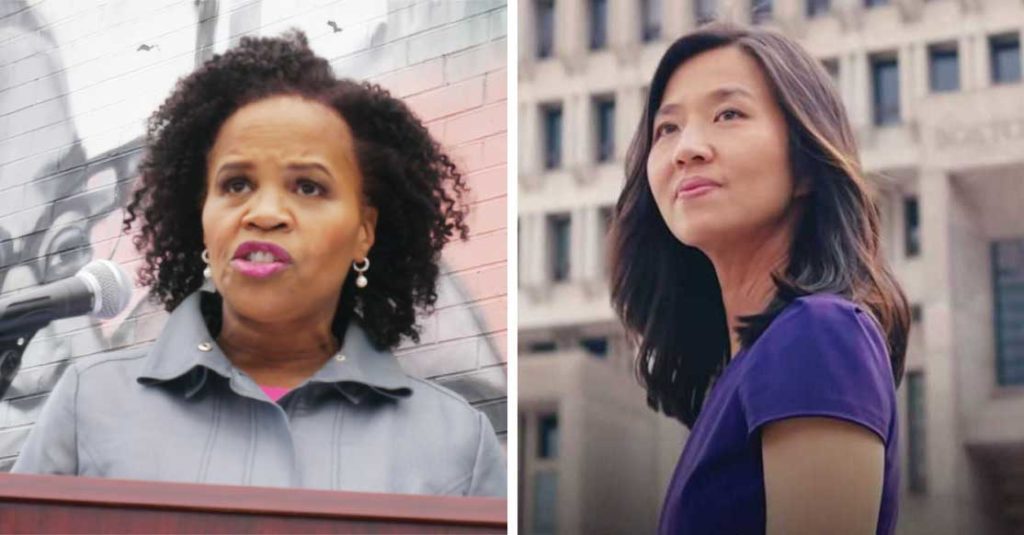Rent control not a clear cut divide
Janey, Wu hold similar positions on issue

As candidates for Boston’s top executive office spread themselves across the spectrum on issues, City Councilor Michelle Wu has made it clear that she stands in support of lifting the 1994 state ban on rent control. But acting Mayor Kim Janey has also made it part of her platform, albeit less vocally.
Despite holding up a sign saying “no” when asked if she would support “the enabling act for rent control at the Statehouse” at a mayoral forum in June, hosted by Right to the City VOTE!, Janey is in support of allowing local control over rent stabilization policies, according to Kirby Chandler, her campaign manager.
“The mayor believes in local control and local options, and she wholeheartedly supports advocates’ efforts for state legislation in this area,” Chandler said in a statement provided to the Banner. “She looks forward to continuing this work with residents of Boston and advocacy groups who are on the ground working to stabilize rents and stabilize communities.”
Janey’s campaign declined to comment on the mixed answers.
On her website, Janey and her campaign discuss the issue without directly addressing it, lumping it instead into a broader category of “community stabilization.”
“That is why I am supportive of efforts to implement community stabilization strategies that will increase cost certainty for our city’s tenants,” the website says.
The policy, for Janey, focuses on local control over rent stabilization efforts.
“I do believe local control is important on all issues, so I support state legislation that would allow cities and towns to decide for themselves how to control rising housing costs,” the website says.
Last week, Janey was endorsed by Right to the City VOTE, a progressive coalition of community advocates. Among the coalition’s priorities are stable housing and equitable development.
“There was a housing crisis before COVID, but now with COVID, the housing crisis is even worse,” said Armani White, chair of Right to the City VOTE. “So, it’s one of the tools we have to use, and it’s super important that cities and towns in Massachusetts are able to decide for themselves how they do that.”
Aside from Janey and Wu, rent control seems off the table in the mayoral race. The other candidates also said “no” in response to the rent control question at the Right to the City forum.
In responses to Progressive Massachusetts’ mayoral candidate questionnaire, City Councilor Andrea Campbell expressed her opposition to rent control, citing concerns from her constituents that rent control would harm them. Instead, Campbell expressed support for other options to pursue housing stability.
“I firmly believe there are many tools in our current toolbox to ensure our residents can afford to live here and stay here and will implement all of them with a sense of urgency,” Campbell wrote.
In her questionnaire, City Councilor Annissa Essaibi-George said that, while rent control might seem to work as a short-term issue, in the long term she thinks it causes issues.
“Studies have shown that while rent control sometimes benefits existing tenants short term, prices of surrounding units will increase, which puts low-income renters at a disadvantage,” Essaibi-George wrote. “This pushes them further and further out away from job centers and public transit. That’s the opposite of what we want to do!”
John Barros, who previously served as the city’s chief of Economic Development, said in his questionnaire response that he supports more rent-controlled affordable units instead of working to remove the ban on rent stabilization altogether.
Wu, who vocally supports the policy now, hesitantly voiced opposition to removing the ban during a panel with candidates for the at-large city councilor seats in 2019.
Rent control was banned in Massachusetts by a state law approved by voters in 1994. The ban passed by a narrow margin, with a 51% to 49% vote in favor of supporting the ban.






